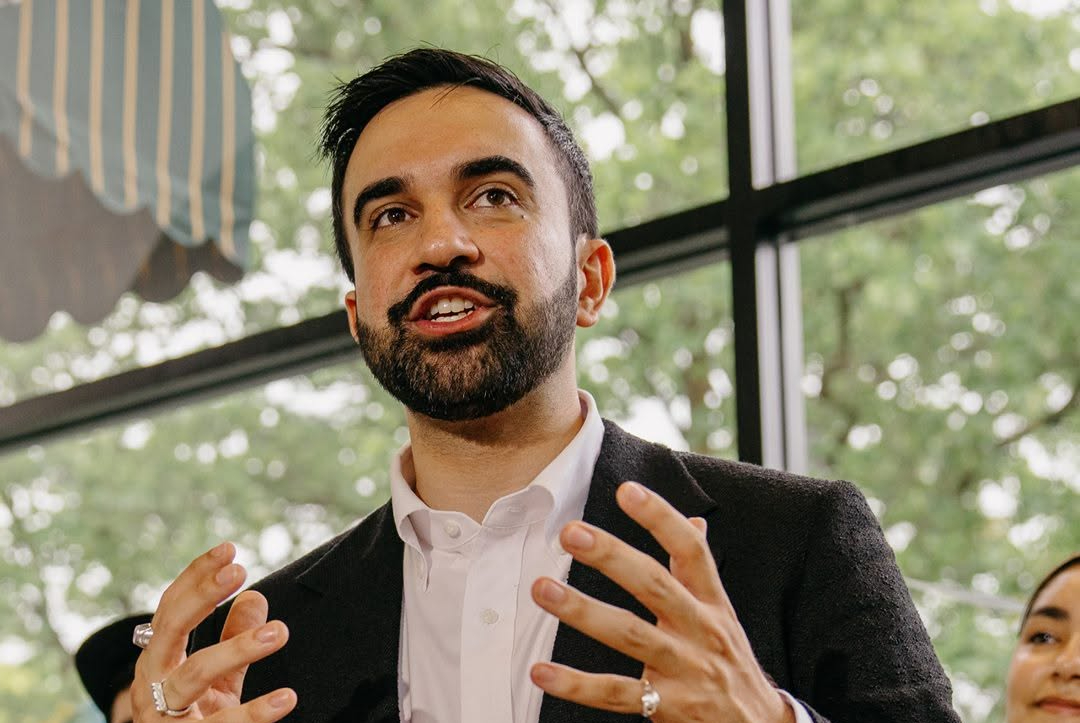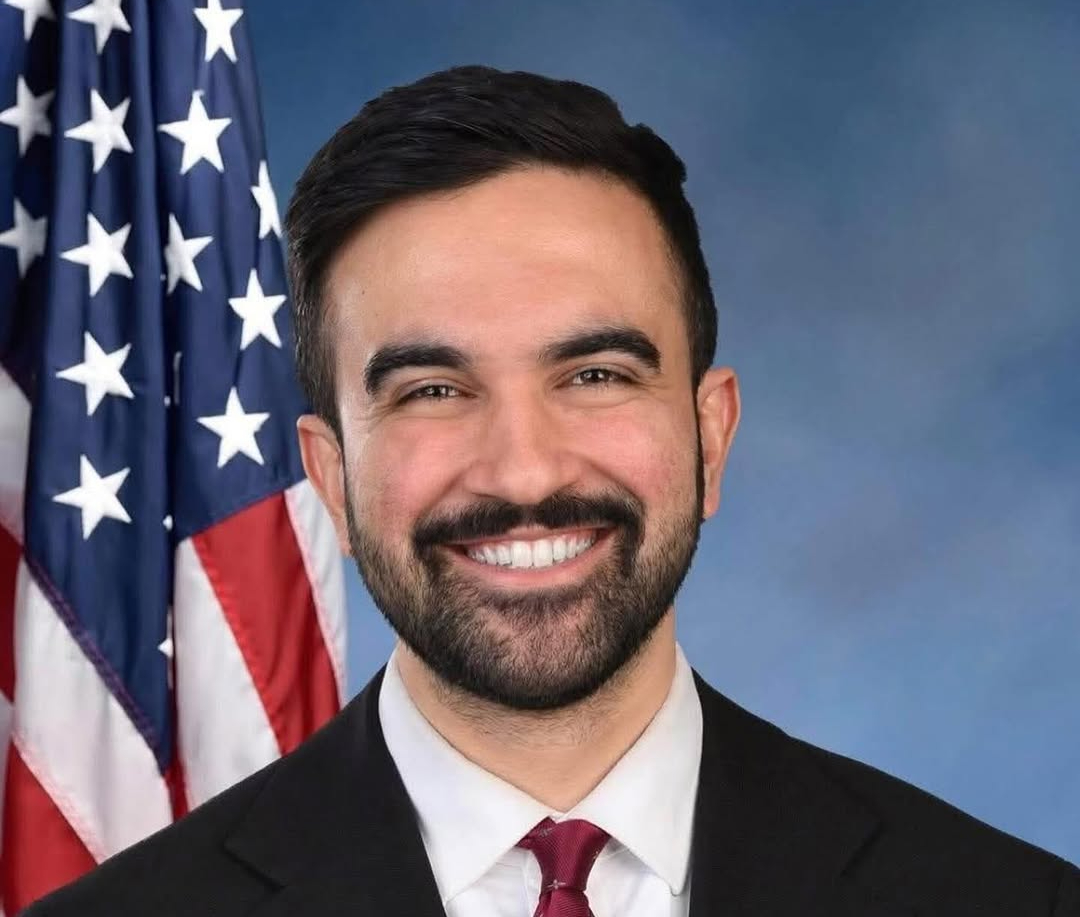Zohran Mamdani NYC Mayor Win 2025: Historic Victory, Bold Policies, and Direct Trump Challenge
Zohran Mamdani, a 34-year-old Democratic Socialist, was elected New York City’s mayor on November 4, 2025, securing over 50% of the vote against Andrew Cuomo (41%) and Curtis Sliwa (7%). The first Muslim, South Asian, and youngest mayor in over a century, Mamdani’s win capped a Democratic sweep including Virginia and New Jersey governorships. His platform—rent freezes, free childcare, and a $30 minimum wage—promises affordability amid Trump threats.
Brooklyn’s Paramount theater shook with raw energy on November 4, 2025, as Zohran Mamdani stepped into history. The 34-year-old Queens assemblyman, a Democratic Socialist with fire in his voice and hope in his eyes, clinched New York City’s mayoral race with over 50% of the vote. He crushed former Gov. Andrew Cuomo’s independent comeback at 41% and left Republican Curtis Sliwa trailing at 7%. Cheers erupted as the Associated Press called it—Mamdani, hand on heart, became the city’s first Muslim mayor, first South Asian mayor, and youngest in over a century. “Breathe this moment in,” he urged the roaring crowd, his words cutting through a night of Democratic dominance. Abigail Spanberger won Virginia’s governorship as its first woman; Mikie Sherrill held New Jersey; California voters backed Democratic redistricting. But Mamdani’s win stole the spotlight, a progressive flare in Trump’s second-term shadow. With a fiery four-word jab at the president—“Turn the volume up”—he signaled a fight ahead. For New York, it’s a new dawn; for America, a defiant roar.
Mamdani’s Meteoric Rise: From Queens Underdog to Gracie Mansion
Zohran Kwame Mamdani arrived in New York at age seven, fleeing Uganda with Indian parents. A rapper once known as Mr. Cardamom, he fought foreclosures and joined the Democratic Socialists of America before flipping a Queens assembly seat in 2020. Last fall, he launched a mayoral bid few took seriously. Fueled by small-dollar donations, tens of thousands of volunteers, and viral social media, Mamdani built a movement. His June Democratic primary victory stunned the establishment, beating Cuomo by 13 points with a diverse coalition of young voters, immigrants, and first-timers.
Endorsements rolled in: Bernie Sanders, Alexandria Ocasio-Cortez, Jerry Nadler, Gov. Kathy Hochul, and—after months of pressure—House Minority Leader Hakeem Jeffries. Sens. Chuck Schumer and Kirsten Gillibrand stayed silent, wary of his left-wing edge. The general election turned brutal. Cuomo, dogged by 2021 harassment allegations he denies, ran on safety and 5,000 new cops. Sliwa warned of “socialism” and “jihad.” Debates crackled over crime, Israel, and Trump. Mamdani faced Islamophobic attacks—a Cuomo-backed Super PAC’s manipulated flier, Rep. Elise Stefanik’s “jihadist” smears. He fired back, calling it “disgusting” and “racist.” Campaigning in Urdu, Hindi, and Spanish, he connected with Yemeni bodega owners, Mexican abuelas, and Senegalese cabbies. “Thank you to the next generation of New Yorkers who refuse to accept that the promise of a better future was a relic of the past,” he said in victory, crediting youth turnout.

Victory Night: Fiery Speech, Emotional Concessions, and Trump Taunt
The Brooklyn watch party exploded as results rolled in. Mamdani quoted socialist Eugene Debs: “I can see the dawn of a better day for humanity.” He jabbed Cuomo—“let tonight be the final time I utter his name”—wishing him “the best in private life” before pivoting to unity. The crowd lost it when he turned to Trump: “If anyone can show a nation betrayed by Donald Trump how to defeat him, it is the city that gave rise to him... So Donald Trump, since I know you’re watching, I have four words for you: Turn the volume up.” Cheers lasted minutes.
Cuomo conceded quietly. Sliwa, emotional, vowed to “mobilize” against socialism but added: “If he does well, we all do well.” Trump, fuming on Truth Social, blamed Democratic wins on the 36-day government shutdown and his absence from ballots. He urged Republicans to kill the filibuster. Democrats celebrated: Schumer, Jeffries, and Obama hailed a blueprint against MAGA. As The Independent reported, Mamdani’s speech electrified, framing NYC as resistance central.
Mamdani’s Bold Policies: Affordability at the Core
Mamdani’s platform is a love letter to working New Yorkers, echoing Fiorello La Guardia’s 1930s reforms. Rent freezes on one million stabilized units could save tenants $2,000 yearly amid 5% hikes, funded by taxing earners over $1 million at 2% more. Universal free childcare for kids 6 weeks to 5—expanding pre-K—costs $7 billion but slashes child poverty 40%, per estimates. Fare-free MTA buses eliminate $2.90 rides for 4 million daily commuters, cutting emissions 15%. A $30 minimum wage lifts 500,000 above poverty. City-owned grocery stores tackle food deserts where 25% in the Bronx go hungry.
Safety evolves: A Department of Community Safety sends mental health pros to non-violent calls, while NYPD handles violence—Mamdani apologized for 2020 “defund” rhetoric, vowing to “work with” Commissioner Jessica Tisch. Immigrant protections include legal reps for detainees and an Office of LGBTQIA+ Affairs for housing and jobs. “No more will New York be a city where you can traffic in Islamophobia and win an election,” he declared. As The Guardian detailed, these policies need Albany’s nod, but Mamdani’s $50 million small-donor war chest signals leverage.
What It Means for NYC: Hope, Hustle, and Hard Realities
Mamdani inherits a city in crisis: Eric Adams’ scandals, rents eating 50% of incomes, homelessness up 20% in 2025. His agenda could transform lives—free buses boost ridership, grocery co-ops feed the hungry, childcare frees parents. Success means a fairer, greener NYC, a model for blue cities. But challenges loom. The $116 billion budget strains under $7 billion in new costs. State moderates may balk at tax hikes. NYPD unions could clash despite outreach. Critics like Sliwa warn of underfunding; Cuomo called him “inexperienced.” Mamdani’s coalition—young, diverse, energized—must deliver fast or risk gridlock.
Trump’s Nightmare: A Progressive Defiance in the Heart of Blue America
Mamdani’s “Turn the volume up” wasn’t just theater—it was war. Trump, who called him a “radical” and “communist,” threatened to withhold federal funds: “Highly unlikely” under Mamdani. NYC’s $10 billion in annual federal aid hangs in the balance. Mamdani’s sanctuary policies and anti-Islamophobia stance could spark ICE clashes and lawsuits. “This is not only how we stop Trump, it’s how we stop the next one,” he vowed, aiming to dismantle oligarchy’s roots. Nationally, his win inspires—10,000 progressives eyed runs post-campaign. Trump’s shutdown blame game backfired; Mamdani’s victory exposed GOP chaos.
National Ripple: A Progressive Playbook for Democratic Revival
Mamdani’s triumph amplified a Democratic wave. Spanberger flipped Virginia blue; Sherrill held Jersey against Trump allies; California’s redistricting countered Texas GOP maps. It’s a rebuke to MAGA complacency, proving affordability beats culture wars. Mamdani’s small-donor, youth-driven model offers Democrats a roadmap: Speak plain, fight bold, win big.
Conclusion
Zohran Mamdani’s November 4 victory isn’t a fluke—it’s a revolution. From Queens streets to Gracie Mansion, the first Muslim, South Asian, and youngest NYC mayor in over a century carries a mandate for change. Rent freezes, free childcare, and a $30 wage promise relief; his Trump taunt signals defiance. For New York, it’s hope with hurdles; for America, a spark in the fight. The volume’s up—New York’s ready to roar.
Zohran Mamdani NYC Mayor 2025: Quick FAQ
Who did Mamdani defeat in the NYC mayoral race? Andrew Cuomo (41%, independent) and Curtis Sliwa (7%, Republican) with over 50% of the vote.
What are Mamdani’s top policies? Rent freezes on stabilized units, universal free childcare (6 weeks-5 years), fare-free buses, $30 minimum wage, city grocery stores.
How does Mamdani’s win impact Trump? His “Turn the volume up” vow challenges Trump’s power, risking $10B in federal funds over sanctuary and equity policies.














